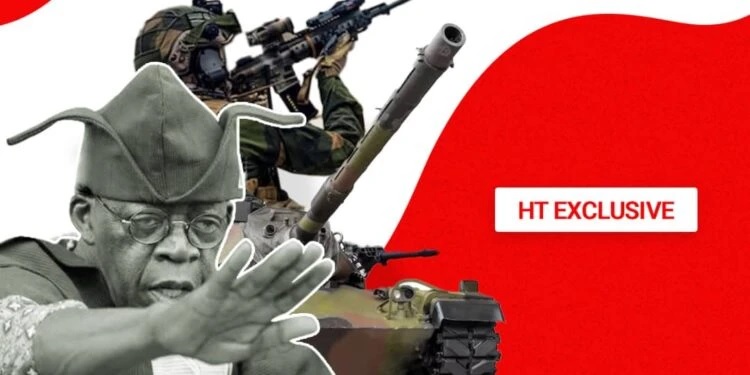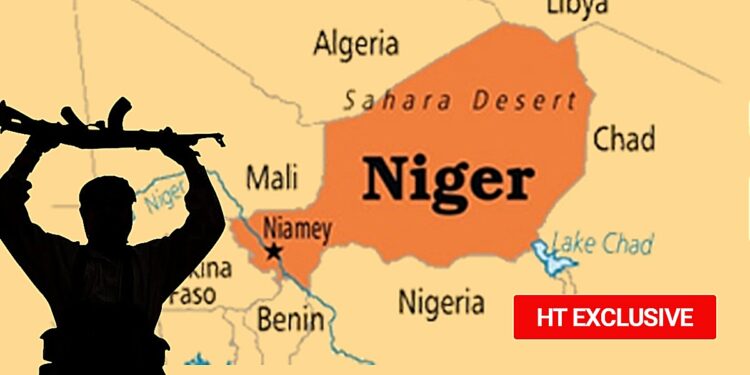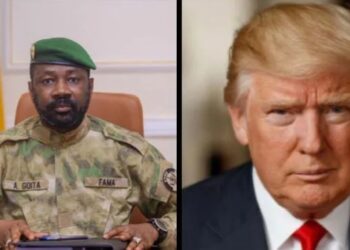In the wake of the recent coup d’état that shook Niger Republic, the Economic Community of West African States (ECOWAS) finds itself facing a critical challenge.
As an organization committed to promoting peace, stability, and democratic governance in the West African region, ECOWAS is now tasked with devising effective strategies to reverse the coup and restore democratic order in Niger.
This article delves into the various options, scenarios, and endgames that ECOWAS may consider in its endeavour to undo the political upheaval in Niger.
Option 1: Diplomatic Engagement
ECOWAS has a history of employing diplomatic channels to address regional crises, and this option remains at the forefront.
It is worth noting that this option has been extensively explored with ECOWAS deploying several diplomatic missions to talk the junta leaders into re-instating deposed President Mohamed Bazoum who has been held in detention since the July 26 coup.
The organization could further diplomatic engagements with the coup leaders, using both political and economic leverage, to convince them to relinquish power and restore the democratically elected government.
This approach requires skilled negotiation and mediation, as well as a commitment to addressing the concerns of the coup leaders.
Option 2: Economic Sanctions
Imposing targeted economic sanctions is another strategy ECOWAS could double on to exert pressure on the illegitimate government. Already the bloc has imposed a number of crippling sanctions that include:
• A freeze on the assets of the coup leaders and their associates.
• A ban on travel to ECOWAS member states by the coup leaders and their associates.
• The closure of all borders between Niger and ECOWAS member states.
• The suspension of all financial and economic assistance to Niger.
While the effectiveness of sanctions remains debatable, there’s no doubt that it is nonetheless crippling. With land borders closed, Niger is now heavily dependent on getting insufficient food and relief materials from Neighbouring Mali and Burkina Faso, two junta-led countries that have openly thrown their weight behind Niger putschists.
Option 3: Mediation and Negotiation
Arguably not yet fully unexplored, ECOWAS could explore facilitating dialogue between the coup leaders and the ousted government for a negotiated settlement.
The bloc could act as a mediator, creating a platform for the conflicting parties to find common ground.
Such negotiations could result in a transitional government, allowing for the return of democratic governance while addressing some of the concerns raised by the coup leaders.
The latest progress in this direction saw ECOWAS reject the junta’s proposal for a three-year power transition plan.
The bloc is insisting on transition in the shortest possible time as opposed to a prolonged one.
Option 4: Military Intervention
Touted as the last resort, ECOWAS has through the region’s defence chiefs activated a standby force for possible military intervention when everything else fails.
The defence chiefs are also perfecting plans for the deployment of the standby force should negotiations hit a stalemate.
However, this option carries significant risks, including potential civilian casualties and the need for a clear exit strategy to prevent prolonged occupation.

Possible endgames and scenarios
Extensive exploration of any of the aforementioned options (except military intervention) could result in the following:
1. Peaceful Restoration: ECOWAS succeeds in diplomatic negotiations, convincing the coup leaders to step down and hand over power to the democratically elected government. This outcome would underline the effectiveness of regional diplomacy and reaffirm ECOWAS’s commitment to democratic principles.
2. Stalemate: If the coup leaders refuse to cooperate and the economic sanctions have a limited impact, the situation could evolve into a protracted stalemate. This scenario risks prolonged instability, potential economic collapse, and even greater political polarization.
3. International Involvement: ECOWAS could seek support from the international community, including the United Nations, the African Union, and other regional organizations. A unified international response might bring greater pressure to bear on the coup leaders and increase the chances of a successful reversal of the coup.
4. Hybrid Governance: In some cases, a compromise might emerge wherein the coup leaders and the legitimate government share power in a transitional arrangement. While a delicate balance, this approach could prevent further conflict and create an environment conducive to eventual democratic elections.
End note: ECOWAS faces a complex web of options, scenarios, and potential endgames in its mission to reverse the coup in Niger Republic.
The organization’s decisions in the coming days and weeks will determine not only the fate of Niger but also the credibility of ECOWAS’s commitment to peace, stability, and democratic governance in the region.
As events unfold, the world watches with anticipation and hope for a peaceful resolution that upholds democratic principles.
………………………………………………………………………………………..
• HT Staff writers Emmanuel Obisue, Ebi Kesiena, Cynthia Akande, Victor Kanayo and John Ikani contributed to this piece.




































